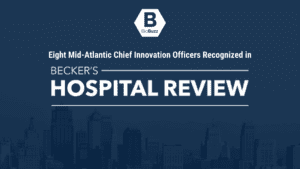
(Martin Lehr, CEO of Context Therapeutics)
Stemline’s Orserdu Approval Smooths Context’s Path Forward
By Mark Terry
January 31, 2023
Philadelphia-based Context Therapeutics reported that its clinical collaborator, Stemline Therapeutics, had its Orserdu (elacestrant) approved by the FDA. Stemline Therapeutics is a U.S.-based, wholly-owned subsidiary of Italy’s The Menarini Group.
Orserdu was approved to treat postmenopausal women or adult men with ER+, HER2-, ESR1-mutated advanced or metastatic breast cancer whose disease has progressed after at least one line of endocrine therapy. The drug demonstrated improved efficacy over the current standard-of-care, fulvestrant, in this patient population.
Martin Lehr, CEO of Context Therapeutics, took time to speak with BioBuzz about Context Therapeutics and what Stemline’s Orserdu approval means for the company.
Context, Lehr says, “is a women’s oncology company with a primary focus on female cancers.”
Context has two programs, CTIM-76, an anti-Claudin 6 (CLDN6) x anti-CD3 bispecific antibody designed to redirect T-cell mediated lysis toward cancer cells expressing CLDN6. The other is ONA-XR (onapristone), which acts by blocking the progesterone receptor (PR).
In the context of the Orserdu approval, onapristone is being developed in a combination treatment with Orserdu. Lehr says, “Our current belief is that the Orserdu approval first and foremost is really good for patients. We’ve had anti-hormonal treatments for breast cancer since the early 1980s. The first approved was tamoxifen and we’ve been trying to improve on anti-hormonal therapies ever since.”
The standard of care for ER+/HER2-/ESR1-mutated breast cancer is fulvestrant, which requires significant and painful injections. “People have been trying ever since to develop an oral replacement. Orserdu, which is oral, is more convenient for patients, and fundamentally better,” Lehr says.
Lehr added that the drug was evaluated in a genetically-defined population of estrogen receptor 1 mutations, which are seen in about 40% of metastatic breast cancer patients. And the test for it is a liquid biopsy, “so a simple blood test can determine the genetics of their breast cancer,” Lehr said.
Context’s onapristone is being evaluated in three Phase II clinical trials and one Phase Ib/II clinical trial in PR+ breast, ovarian and endometrial cancers.
“I think this means two things to Context,” Lehr says. “We strategically believe that blocking both estrogen, which is what Orserdu does, and blocking progesterone, which is what our drug does, will provide an additive benefit to these patients.”
In December 2022, Context presented positive preliminary data from the Phase II SMILE trial of onapristone in endometrial cancer. The drug is being evaluated in combination with fulvestrant in ER+/HER2- advanced or metastatic breast cancer patients who progressed on previous CDK4/6 inhibitor therapy. Preliminary findings showed a 4-month progression-free survival (PFS) rate of 44% with a positive safety and tolerability profile.
In addition, Context presented an early look at the trial design of the Phase Ib/II ELONA trial being conducted with Stemline/The Menarini Group’s Orserdu in patients with second- or third-line advanced or metastatic ER+/PR+/HER2- breast cancer. A data readout from the Phase Ib part of the trial is planned for the fourth quarter of this year.
Ultimately, Lehr says, “in the mutant population, we have the potential to enhance the good activity that Orserdu saw in their trial, with better outcomes for patients. We also hypothesize that we could potentially have a whole new market for the other 60% of patients that don’t have that mutation.”
An upcoming trial will enroll about half of the patients with the ESR1 mutations and the other half without. “We want to show that we can work with Orserdu in those patients. We also have another trial in endometrial cancer and we’re seeing really nice clinical activity in that Phase II cancer trial. The next update will be at a June conference,” Lehr says.
At this time, Context has a cash runway into 2024 and Lehr says, “we are well-positioned to execute over the course of this year.”
He adds, “We want to advance these promising assets in the best manner possible for our shareholders. Ideally, we’d either like to raise more capital and advance the drugs ourselves or partner these assets with a capable biopharma partner who is able to further accelerate their development.”
- About the Author
- Latest Posts
Mark Terry is a freelance writer, editor, novelist and ghostwriter. He holds a degree in microbiology & public health and spent 18 years in infectious disease research and clinical and research genetics prior to his transition to a writing career. His areas of expertise include biotechnology, pharma, clinical diagnostics, and medical practice management. He has written literally thousands of articles, as well as market research reports, white papers, more than 20 books, and many other written materials. He currently lives in Michigan with his family.








